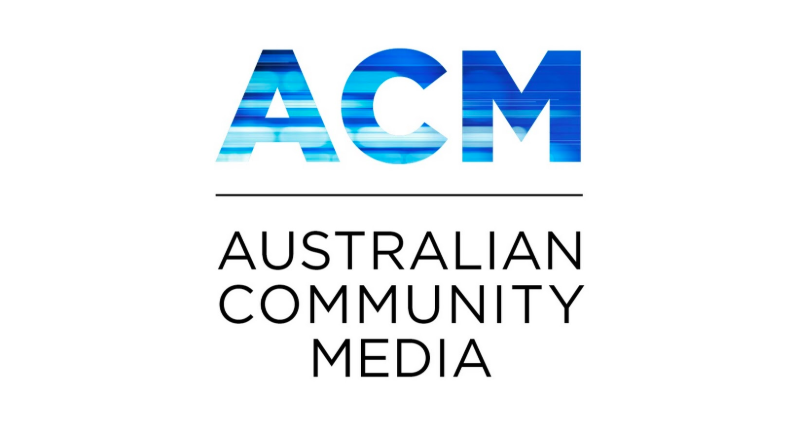ACM announces plans to close four regional print centres
Australian Community Media (ACM) has flagged its intention to permanently close four printing centres in Albury, Ballarat, Canberra and Murray Bridge to “ensure the sustainable long-term future of our highly valued mastheads”.
Two of the sites – Canberra and Murray Bridge – were closed temporarily in April, when the business suspended more than 150 non-daily titles and stood down employees working at both those newspapers and the printing facilities.
The Antony Catalano-backed business cited droughts, fires, floods, and COVID-19 as challenges that have led to “considerable investment, restructure and change”.

“With the suspension of these external printing clients along with our own product stand downs, ACM no longer has the volume of printing to warrant the number of print centres in its stable,” the company said in a statement.
“We have begun a consultation process with employees [working at the four sites] and their union representatives.
“Whilst the proposal is likely to result in some print site closures, it is proposed that this will result in a business model to ensure the sustainable long-term future of our highly valued mastheads.”
Last week, News Corp announced similar plans to shutter its Queensland print centre after axing the print editions of more than 100 newspapers, resulting in between 500 and 1,000 job losses. ACM referenced News Corp’s decision when delivering its own news.
“We have seen the rationalisation of print sites around the country for some time – including Tullamarine, Chullora, Ormiston, Beresfield and Beaudesert – most recently News Corp have announced further rationalisation of their Queensland print sites as the industry continues to rationalise to ensure capacity meets demand,” it said.
“Whilst we have done our best to navigate our way through the external factors – these challenges continue to affect not only our business but many other publishers who utilised ACM’s nine print facilities around the country.”

Catalano acquired the titles from Nine
The publisher added that closing the sites would “remove a heavy cost burden and more importantly remove a capacity that is no longer required by our business”. Reducing ACM’s printing capacity is a “prudent decision” in order to “ensure ACM’s ongoing success”, it said.
Some of the staff stood down in April went back to work recently, after a public petition organised by the journalists’ union, the Media Entertainment and Arts Alliance, gained more than 5,000 signatures. The media company’s union delegates sent a letter to management asking for a concrete timeline for returning to work.
Mumbrella also understands that ACM contacted a number of employees it incorrectly assumed were eligible for the government’s Job Keeper program, asking for those “overpayments” to be repaid. The union has written to ACM asking it to cease attempts to recoup these amounts. The Job Keeper program is a temporary subsidy which sees eligible businesses receive $1,500 per fortnight in wages for each eligible employee.
To be eligible, an employee must have worked for a business in a full-time, part-time, or fixed-term capacity before 1 March, or be a long-term casual employee – which means having regular and systematic shifts for a period of 12 months – by that date. An employee is not eligible if they are permanently employed by another business, or receiving governmental parental leave, or workers compensation payments.

The union has written to ACM about alleged Job Keeper ‘overpayments’ to some employees impacted by stand downs
Speaking on a panel last month, Gayle Tomlinson, ACM’s head of audience, said that COVID-19 has sped up change that was already impending, and subscriptions have never been better.
“There’s no doubt that there’s still shifting of the sands. I’m actually genuinely excited about the future of local news,” she said.
“There’s a huge opportunity for us to capitalise on that. Of course, the landscape may look a bit different to what it does right now. But that was coming in any case, COVID sped that up a notch. COVID has accelerated certain behaviours and one of them is the propensity to pay for news. Our subscriptions have never, ever been stronger and that’s because the readers are seeing the value of our coverage.”



 Linkedin
Linkedin
“ Mumbrella also understands that ACM contacted a number of employees it incorrectly assumed were eligible for the government’s Job Keeper program, asking for those overpayments to be repaid”
Wow….. one for the old Glassdoor review. Can’t imagine there are lines of media reps out the door wanting to work there!
User ID not verified.
ABC Radio National had a lengthy discussion piece on ACM and localised competitors 08/07/2020 at about 1500hrs. The assertions being put forward were that the ‘Zombie” ACM titles – where the greater proportion of editorial was syndicated pieces v local coverage – were primarily focussed on profit whereas the smaller, competitor non-aggregated/non-syndicated titles were remaining true to being the voice of and reflecting back the local community. Interestingly NewsCorp QLD are trying to retain local print sales by “dual mastheads”, The Courier-Mail and Bundaberg News-Mail for example, across the top of “localised” editions of the state paper with what appears to be a “wrap” containing wider local news, an apparent strategy to “force feed” subscriptions to state titles. Either way leaves a gap in the market for smaller publishers with less overheads, smaller distribution footprints and lower publishing frequencies to exploit IMO.
User ID not verified.